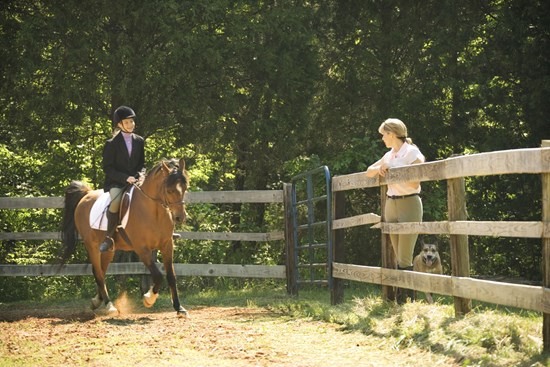 Credit: Thinkstock
Credit: ThinkstockMinors, those individuals under the age of 18 in most states, lack the legal capacity to enter into a binding contract. As a result, conventional wisdom when dealing with a minor is to require a parent or guardian of legal age to cosign the contract. When the agreement involves payment of a debt, such as a board bill, the conventional wisdom makes sense. When the contract is a waiver releasing the farm owner from liability for a minor’s personal injuries, on the other hand, courts are divided about the effectiveness of having both the child and parent sign the agreement.
The question regarding parental waivers is whether a parent or guardian has the legal right to waive a minor’s right to file a lawsuit in the event of an injury. Parental waivers are enforced by courts in some states, but not in others. Dr. Doyice J. Cotton and his wife, Mary, know more about liability waivers than just about anyone. They provide a wealth of information about waivers and other risk management issues at their website, www.SportWaiver.com, and in Waivers & Releases of Liability, their comprehensive guidebook now in its eighth edition. According to the Cottons, courts in 18 states have ruled that parental waivers are not enforceable. Parental waivers have been enforced in a handful of states, while courts in other states have not addressed the issue with sufficient clarity to know the status of such waivers.
Although parental waivers are unenforceable in some states and of questionable value in many others, there are important reasons to use them when dealing with minor clients:
- “Assumption of the risk,” a claim that the injured person knew the risks of the activity and took part anyway, is a long-standing defense in a personal injury lawsuit. The defense doesn’t require a liability waiver, but a properly worded waiver can be used as irrefutable evidence that both the injured minor and the parent or guardian knew that activities with horses carry inherent risks and that the minor’s participation was voluntary, with permission of the parent or guardian.
- In states where courts enforce parental waivers, a properly worded waiver might provide a defense to a claim of ordinary negligence on the part of the farm owner or his employees. Negligence is an exception in many state equine activity liability statutes, and an enforceable waiver could provide protection not provided by the state statute.
- Finally, even in states where parental waivers are not enforced, an injured party might be less likely to file a lawsuit if a promise not to do so has been signed.
Takeaway: This article only scratches the surface of parental waivers and is not legal advice. For that, you should contact your attorney for help. Using parental waivers falls into the “might not help, but certainly won’t hurt” category of business practices. These waivers will be enforced in some states, and may be useful in other states as well—provided that the waivers are drafted to address a waiver of ordinary negligence and to support an assumption of the risk defense.


